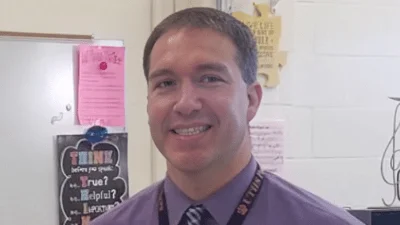As Illinois Democrats continue to push for Gov. J.B. Pritzker's so-called "Fair Tax" that one online news outlet calls dishonest, state House Rep. Dan Swanson (R-Alpha) warned attendees at a recent town hall meeting that lower-income state residents should be wary.
Approximately 174,000 state residents would pay the top tax rate under the Fair Tax, compared to about 4 million who would pay the lower rates, Swanson said April 17 during the session at The Stables in Kewanee.
"Where do you think they're going to go for the money?" Swanson was quoted in local news coverage about the town hall meeting. "They're going to go after the 4 million people."

Illinois Democrat Gov. J.B. Pritzker
| illinois.gov
Swanson did not respond to a Rock Island Today request for comment about a Wirepoint's article published last week that challenged the honesty of a Pritzker-linked group that said the tax would "fix" the state's fiscal crisis. However, during the town hall meeting, Swanson reportedly agreed with his co-host, state Rep. Tony McCombie (R-Savanna), that the state government's controlling party, the Democrats, can't be trusted.
McCombie told attendees that she was not necessarily opposed in principle to a graduated income tax but that she didn't care for the Democratic-controlled General Assembly making decisions about implementing the tax.
"Do you trust your government to be good stewards of your dollar?" McCombie asked attendees.
Swanson voiced his agreement, saying "That's the thought that concerns me the most."
In February, Swanson publicly said he was "wary of Pritzker's progressive tax scheme," voicing concern about changing the state's Constitution to create a progressive income tax. Illinois' Constitution specifically prohibits a graduated tax, which means the Constitution will have to be changed before the Fair Tax could happen.
"I understand moving this direction is the only possible way he can pay for the $1.121 billion in new spending this year and the mushrooming spending to follow further into Pritzker's administration, but Illinoisans are sick of kicking the can down the road without addressing the real cost-drivers of our out-of-control state spending," Swanson said in a news release that followed Pritzker's budget address. "To accomplish some of the new revenue to support this out-of-balance budget Gov. Pritzker is relying on major policy changes to include legalizing recreational cannabis, enact sports betting and adding a 5-cent excise tax on plastic bags."
There was nothing from Pritzer about reforms, Swanson said.
"I didn’t hear any discussion about growing the economy through job opportunities and growth," he said. "We can’t continue to tax and burden the hard-working people of Illinois. The reality is fewer and fewer Illinoisans are being asked to pay for more and more."
Swanson has represented Illinois' 74th District in the state House since January 2017 following his election to replace State Rep. Don Moffitt (R-Gilson), who had taken a post with the state Agriculture Department.
The 74th District includes Mercer, Henry, Knox, Bureau and Lee counties and all or parts of Galesburg and Kewanee.
Pritzker argues his Fair Tax plan, which was a major part of his 2018 election campaign, wil create taxation in Illinois that works for all residents, not just the rich. Although commercials in favor of the graduated tax began running in March, the real push for the Fair Tax was launched earlier this month over the objections of conservatives in the state legislature.
Think Big Illinois argues that Pritzker's Fair Tax plan can "fix our state's $3.2 billion crisis" but a recent Wirepoints article called that claim dishonest and said passage of the Fair Tax would dupe Illinoisans "into throwing more money at a doomed effort."
Think Big Illinois underestimates just how large the state financial crisis is, said the Wirepoints article, written by publication founder Mark Glennon.
"If only the hole indeed were just $3.2 billion," the article said. "Most Illinoisans of any political stripe would probably be happy to pay up and call it a day to fix our fiscal crisis, no matter how the burden was distributed. But it’s preposterous – off by several multiples, depending on exactly what you choose to count."
The annual funding shortfall for only the state’s five pensions comes in at $4.7 billion a year, based on actuarially determined contributions and "on assumptions widely regarded as far too optimistic," the article said.
"But the new tax would raise only $3.4 billion per year [That’s the administration’s claim, though the estimate has been heavily criticized as too optimistic]," the article continued. "In other words, the new tax wouldn’t come close to solving the state’s pension crisis, never mind the hundreds of local pension funds across the state."



 Alerts Sign-up
Alerts Sign-up